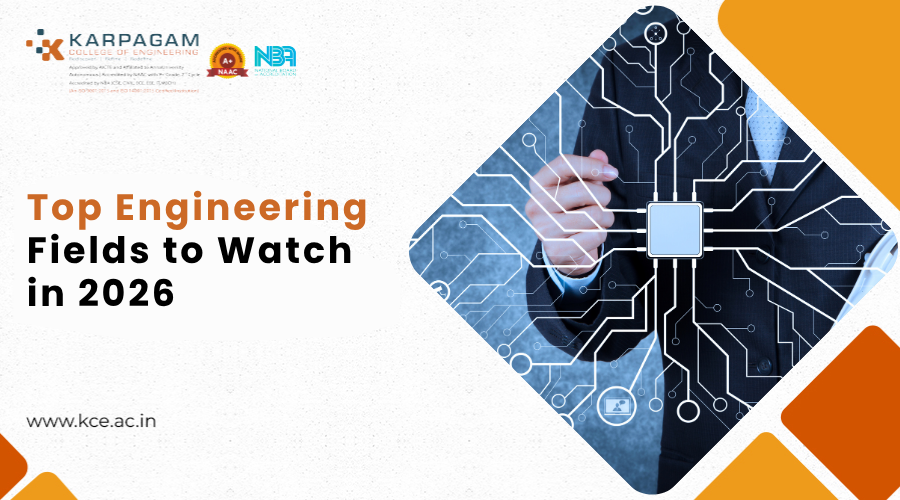
Introduction
You know what? Trend lists can feel like a fire hose. One minute it’s AI, the next it’s hydrogen, then it’s space. Breathe. Don’t chase every headline. Pick a path that will still make sense when you graduate. Here’s how to read the noise and what to learn now so you are ready when opportunities show up.
Reading Emerging Tech Trends Without the Panic
Why “Emerging” Matters for Students Right Now
Emerging doesn’t mean far off. It means labs, pilot plants, and early products are crossing into normal work, the stage where internships and starter roles open. When hackathons, new electives, and campus talks cluster around a theme, pay attention. That’s your signal.
How to Read Trend Noise Without Panic
Ask three questions:
- Does this area solve a real pain?
- Can I build a small project on a student budget?
- Are there skills I can practice this semester? If you answer yes to two, it’s a practical trend. AI Engineering That Moves Beyond Just Models.
The buzz moved from demos to deployable systems: edge AI on phones, cameras, and lines; safety and trust for testing and monitoring; infrastructure to ship reliably.
Learn now: Python, NumPy, PyTorch basics; data labeling; prompt hygiene; simple monitoring (Grafana); deployment (FastAPI). If possible, try an NVIDIA Jetson or Raspberry Pi. Keep projects small and real.
Emerging Engineering Fields You Can Prepare for Today
Cyber-Physical Security for Real Stuff
Plants, grids, and hospitals run on control systems not built for modern threats. OT security blends PLC logic with packet traces, quiet work, and high stakes.
Learn now: Networking fundamentals, PLC ladder logic, Linux comfort, threat modeling. Build a tiny lab with a Modbus simulator and Wireshark. Practice writing clear incident notes.
Clean Energy Systems and Smart Grids
EV charging, battery management, rooftop solar, converters, and green hydrogen are making the grid smarter. Power electronics is at the core, with control and data wrapped around it.
Learn now: Circuit basics, converters, MATLAB/Octave, and a microcontroller. Build a small DC converter on a breadboard. Simulate faults; show controller response. If you like chemistry, read up on cell aging and state estimation.
Chips, Packaging, and Photonics
Semiconductors aren’t just designed. Packaging, testing, and photonics (chiplets, 2.5D, optical links) are rising fast. Precision work, huge impact.
Learn now: Signals and systems, basic VLSI, PCB layout (KiCad/Altium student versions). Practice verification thinking. For photonics, start with waveguides and simple sims. Document rigorously.
Space Tech Goes Small and Smart
Small satellites now do serious work. Payload miniaturization, low-cost ground stations, and better navigation make space projects accessible.
Learn now: Orbit basics, SDR tools for ground links, embedded C for low-power boards. Join a CanSat or student satellite group. Log results like a mission team.
Bioengineering and Digital Health
Wearables, point-of-care devices, and smart diagnostics need engineers who mix sensors, signal processing, and ethics. Hospitals want reliable, maintainable tools.
Learn now: Biomedical sensors, simple filters in Python, regulatory basics. Build a heart rate or SpO₂ prototype and validate it with a small test set. Handle data with consent and care.
Robotics That Works with People
Factories and warehouses add collaborative robots; hospitals use robots for routine tasks. The gap isn’t in the motors; it’s in perception, planning, and safety around humans.
Learn now: ROS, control loops, camera fundamentals, and path planning. Start with a low-cost bot and a camera. Make it follow a line and then a person safely. Record failure modes and fixes.
Also Read: https://kce.ac.in/top-robotics-project-ideas-engineering-students/
Climate Tech for Water and Waste
Cities wrestle with leaks, floods, and waste streams. Sensors, telemetry, and data models help. So do robust mechanical fixes. Field proof beats fancy decks.
Learn now: Low-power IoT, basic hydraulics, a bit of GIS. Build a water-level logger and test it over a week of rain. Partner with a lab or community group. Show before-and-after evidence.
Skills Every Engineering Student Should Build Now
What Students Should Learn Now
Across fields: systems thinking, clean code, drawing, and measurement habits matter. Keep your core strong; add domain flavor.
Math you can use: linear algebra, probability, and control.
- Programming base: Python for most tracks; C/C++ for embedded
- Version control: GitHub for code, data, and reports
- Modeling or CAD: MATLAB/Octave or Fusion 360, per track
- Communication: short reports, clean plots, one calm slide
Ship one project each term to a real user, even a classmate counts. Learn, build, measure, and tell the story.
Also Read: https://kce.ac.in/technology-skills-that-will-be-in-high-demand-in-2025/
Quick Resources You Can Use This Week
- GitHub for repos, issues, and simple demo pages
- Google Workspace for docs, sheets, and timelines
- NPTEL or Coursera for core math/control refreshers
- ROS tutorials plus a low-cost bot kit for practice
- Your college incubation center for space, mentors, and field contacts
Pick two. Use them. Don’t collect tools like souvenirs.
A Calm Way to Choose Your Track
Here’s the mild contradiction: move fast with care. Speed without care wastes a semester, while care without speed stalls momentum. For one month, run small sprints in two fields you like. Build one tiny project in each. Log what felt natural versus forced. Talk to a senior or incubator mentor. Choose the field that keeps you curious on tired days. Curiosity fuels the boring parts of learning.
Conclusion
Trends will keep shifting and headlines will keep shouting, but your career will not depend on hype. Your real edge comes from strong fundamentals and a few solid projects that actually work. Show that you can solve a problem, measure improvement, and explain your choices clearly. The guidance and exposure you gain at the Best Engineering College in Coimbatore can help you stay consistent and confident. Keep your repo tidy, your demo simple, and your progress visible. Be the student whose work speaks first because that student gets the call.
